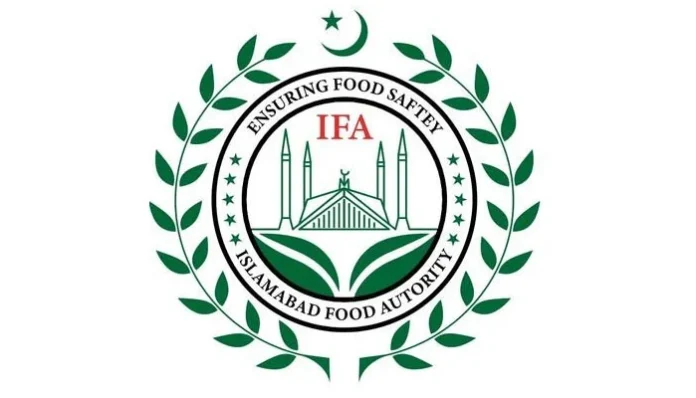- Advertisement -
ISLAMABAD, Apr 25 (APP):The Islamabad Food Authority (IFA) has started focused training programmes to make food safer for people living in the Federal Capital.
In collaboration with Nutrition International, the authority recently held a session aimed at flour mill owners. This training focused on improving food safety, adding iron to flour, and maintaining hygiene during food production.
Iron fortification was a key part of the training. Experts highlighted the need to add iron to flour in the right amounts to fight iron deficiency in the general population. According to the IFA, this step is essential to improve public health and nutrition.
Representatives from Nutrition International also took part in the training. National Manager Shehzad Hussain and Zonal Manager Asim Jameel spoke about the importance of food fortification and how it can help reduce malnutrition in Pakistan.
They explained how fortified flour can become a reliable source of nutrients for low-income families who rely on basic food items like bread and chapati.
The Islamabad Food Authority also introduced the idea of following international food safety testing standards.
On the occasion, Deputy Director Operations of (IFA) Dr Tahira Siddique said that adopting these practices will make food inspection and quality control more reliable. This move is expected to help track problems in food production more effectively.
Dr. Tahira Siddique emphasized the need to strictly follow food safety rules. She said that enforcing these rules is the only way to reduce harmful additives and contamination in food. Dr. Siddique added that the training will help food business operators understand the laws better and apply them in their daily operations.
The training session also covered the handling and storage of flour, highlighting steps to prevent it from becoming unsafe for use. From proper cleaning of machines to using clean water and containers, each point was discussed with practical guidance.
Officials from both organizations said that such sessions will continue, and their cooperation will grow. The Islamabad Food Authority and Nutrition International have agreed to work together on more programs focused on food fortification.
The IFA believes that by educating those involved in the food supply chain, especially those working at the grassroots level like flour millers, they can bring lasting change. Most mill owners welcomed the session and said they were ready to upgrade their practices to meet food safety standards.
This joint effort is part of a wider campaign by the Islamabad Food Authority to control food quality issues in the capital. The authority has already conducted several inspections of markets, bakeries, restaurants, and food factories. Training flour millers is another important step in building a food system that is safe, reliable, and good for health.
The officials also mentioned that after the training, they will keep visiting these flour mills to ensure that the new practices are being followed. Monitoring and feedback will be part of this long-term effort. The IFA is also working on making food safety information easier to understand for local businesses so that compliance becomes simple and clear.
Nutrition International stressed that food fortification is one of the most cost-effective ways to tackle hidden hunger. Their team shared case studies and research that show how adding key nutrients to food has helped other countries improve their public health indicators.
By joining hands, the Islamabad Food Authority and Nutrition International hope to build awareness and responsibility among food producers and sellers. Their shared goal is to protect public health by improving the quality of everyday food items.
More such trainings are expected to take place in the coming months. The IFA is also planning to expand these sessions to other sectors such as dairy, meat, and beverages to make food safety a permanent part of the capital’s food system.

